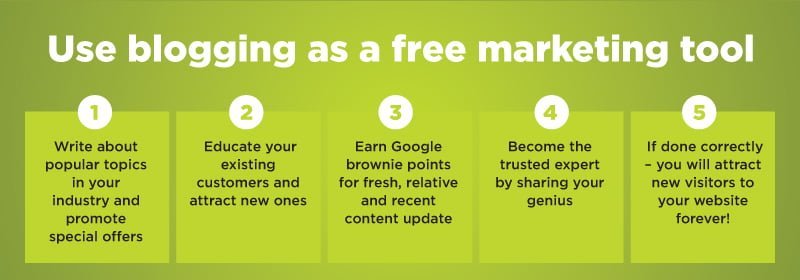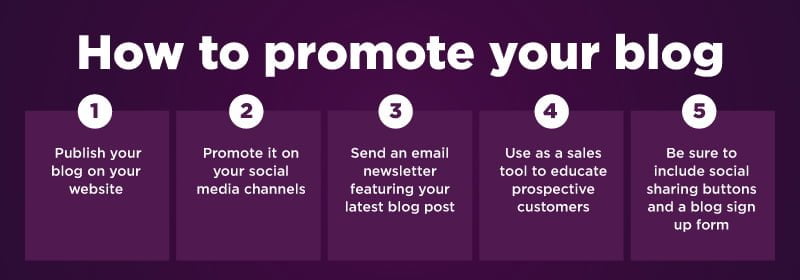What is blogging?
We have all heard about the term “Blog” or “blogging”. Today we are going to decipher what it’s all about.
Let’s do a little bit of time-travelling, back to the days when Hugo got dragged to the movies by his first ever girlfriend to watch Titanic, yes… we are talking late 90’s.
Back in those days a blog was called “weblog”. The most common use of a weblog was an online diary or journal. Little Hugo’s weblog, was a very simple looking page on the internet where he wrote about his everyday life. Adventures with his girlfriend, his thoughts and music recommendations. It was publicly accessible and every reader had the possibility to leave a comment. Hugo would be able to reply and engage with his readers.
In 1997, one of Hugo’s blogging mates had a play with the word “weblog” on his online diary page and split it into “we blog”. Unintentionally he created a new word, which a decade later is part of our daily speech/lingo. We use
- “blog” as a noun – a page on the internet with articles around a specific topic (e.g.: websites)
- “personal blog” – to share recommendations/experiences or
- “company blog” – share knowledge and promote services
- as a verb “to blog” – writing and publishing content on your blog
- and obviously to name the author “the blogger”.
Fantastic, now we have covered the basic vocabulary of blogs. There is one more to know: a post or blog post, which is the published end-result. It is the article about a particular topic you can read on a blog.
Back to the future
Ok, now let’s head back to the future and have a look at what’s happening in 2017. Hugo has settled down in Whangarei with his lovely Daphne and is the face of a successful small business – a website and design company, Monster Graphics.
His blog from back in the days no longer exists, however, his passion to share and write is still the same. Time is precious for a busy monster like Hugo and his main concern is to succeed with his business. How to follow his passion and conglomerate the needs of his business? The answer was quickly found and is best practice for any industry: he uses his blog for his marketing and SEO strategy (find out more about SEO here).
What’s the difference between a blog and a website?
Each business should have a website. When we have a problem or a need, we reach out to Google and contact one of the first businesses listed on the search result page.
Your website has the purpose to display information about your company, showcase the services and products you sell/offer. Its high visual impact creates a lasting first impression and will get people to contact you. Some business only have a website, but do not have a blog. More and more companies use both and integrate their blog onto their website. This is a great practise for SEO reasons. However, no company should only have a blog as their web-presence! Your website is set up once and content will only need attention from time to time. Your blog however, needs regular attention and updating. Use it as a free marketing tool by publishing smart and strategically chosen content.
When Hugo sits down “to blog”, he chooses one topic he would like to elaborate on. A topic, he has expert knowledge on and that is relevant to his industry. His blog makes his knowledge accessible for everyone. Readers can interact via the comments function, and Hugo can give personalised advice. This possibility to interact is what sets a blog apart from a website.
Some may think a “forum” is the same thing as a blog. A website, a blog and a forum are all different things. A blogpost is an article written by an expert (hopefully) about a certain topic, a forum allows to ask a question to people giving their advice.
The latest addition to the mix is YouTube and Vlogging – Video blogging.
Why blog?
As mentioned above, blogging should be part of your wider marketing and SEO strategy.
Use your blogposts as helpful articles evolving around your core services, written for your current customers but also to point new ones in your direction. If you know little about SEO, each blog article can be optimised for a specific keyword, this will help with your Google rankings. Each blog post will make Google happy, as it means new, relevant content and will give your website a little boost in the ranking war.
Your blog is the perfect place on your website to tell your readers about your products, services, your brand and maybe a little more about yourself. Your readers will get more familiar with your business and brand. By sharing your knowledge and expertise, you build trust and credibility amongst your customers and in your industry.

When to blog?
You need to update your blog regularly. Once a month or every week, it does not matter as long as you do it on a regular basis. Every blog post allows you to show off with your expert knowledge about a certain topic. You are marketing yourself and your services. Obviously, using your business’ website as a gateway, these topics should only be related to your core services.
What to blog about?
Setting up a blog is really easy, we will take care of it for you. The difficult part is finding the right topic.
Hugo is more than happy to share his inspiration-finding with you:
The best start to a blog post is to think about your industry/area of expertise and find out if there are poorly or unanswered questions in your field that customers keep asking you about and you have the answer to. It is all about helping, making recommendations and suggesting solutions to a problem. It could also be a topic that is trending at a particular time of the year, like taxes. For the SEO-experts amongst our readers, you might write your blog post simply depending on the outcome of your keyword research. If this sounds like a foreign language to you, don’t worry and keep reading, we are switching back to English now.
Expert advice can get pretty dry, technical and boring. Give your blogposts a twist by making it personal, adding images and some banter, try to entertain whilst educating. Your overall goal is to associate your brand/company with trust, loyalty and likeability by providing original content. A copy-paste from an article or blog you have recently read is not a good practise.
What next?
Now that you have your blog all set up and invested a serious amount of time to write your post, make sure it’s going to be seen! Promote it, market it! Use facebook and your newsletter to let your customers know that a new article is available. When you are in client meetings or your prospects get stuck on a topic, refer them to your blog.
Don’t wait. Make the most of your website and get in touch with us now to set your blog up and get a FREE Blog training session!*this offer has expired
Your FREE Blog training will cover how to choose a topic and how to utilise SEO practices to boost your Google rankings. Contact us today.

